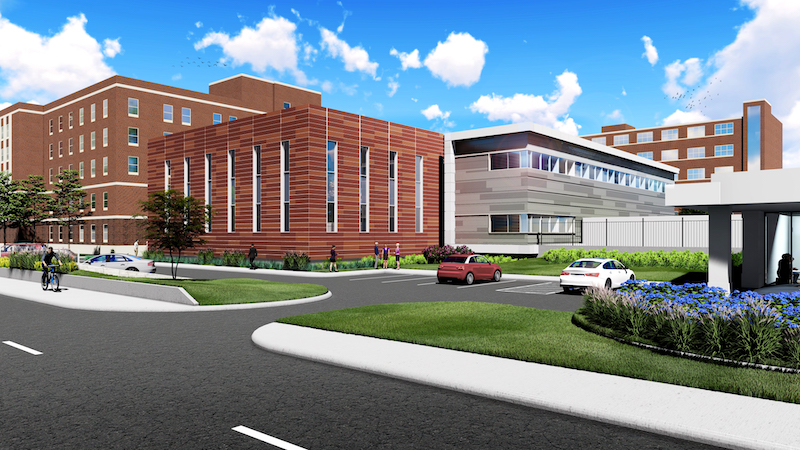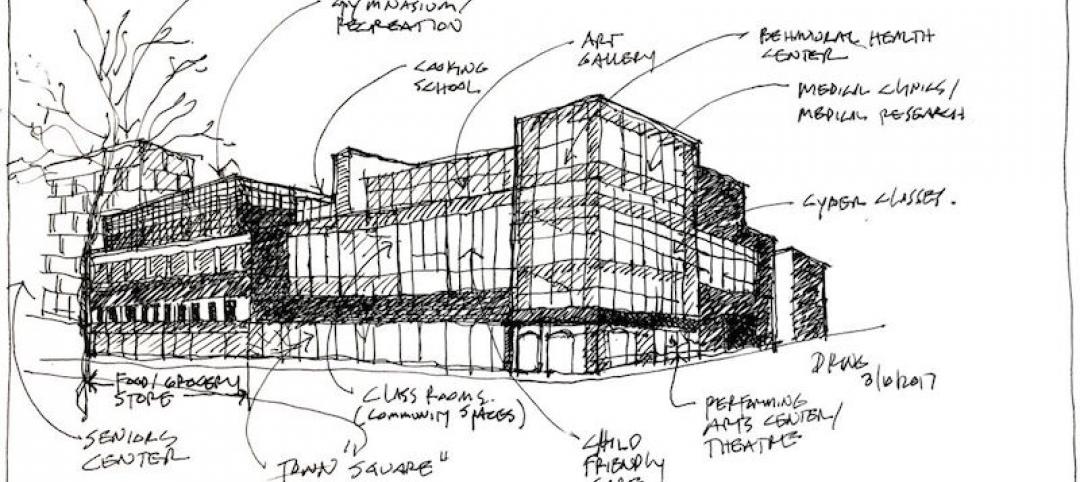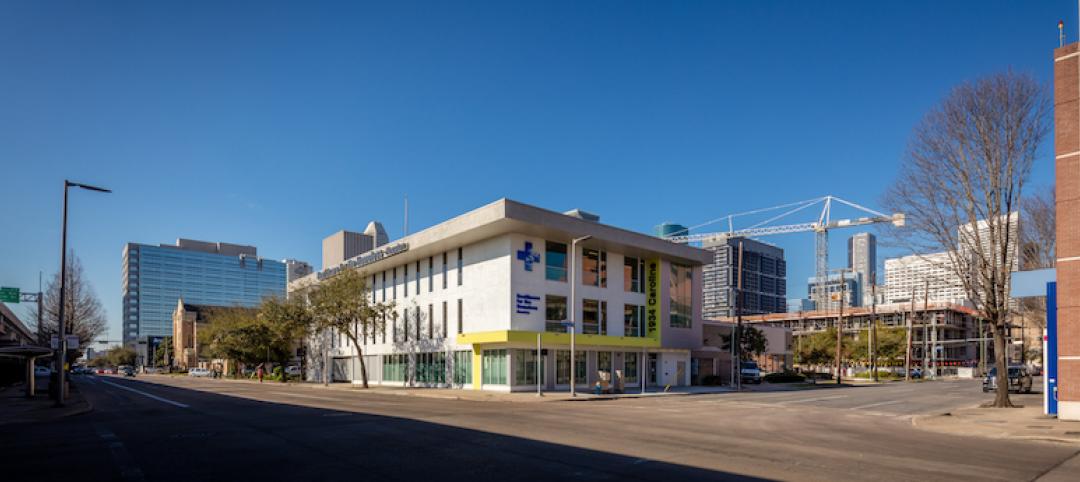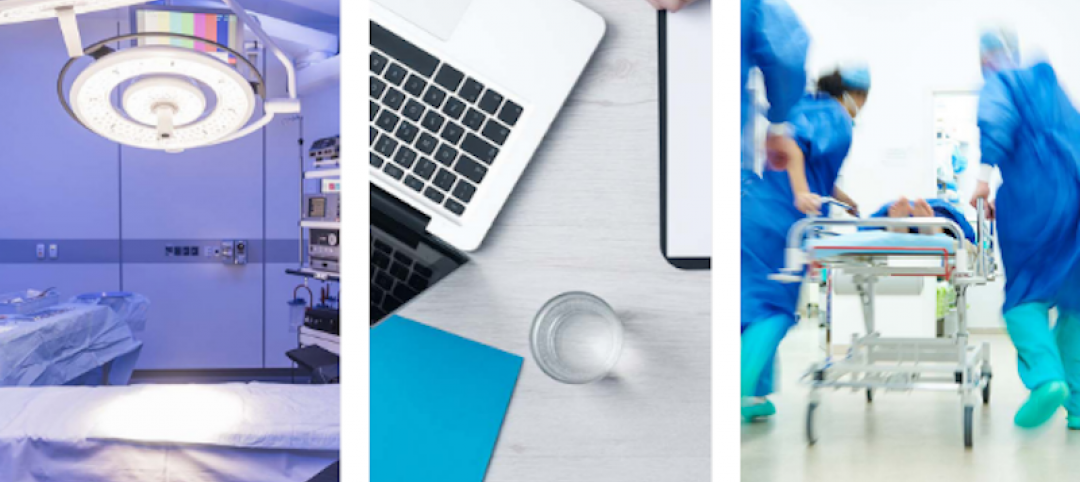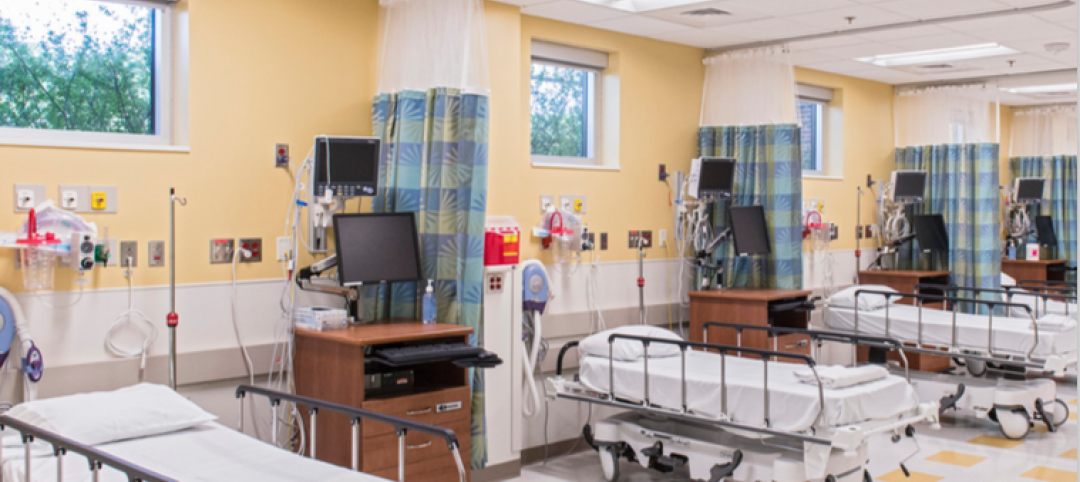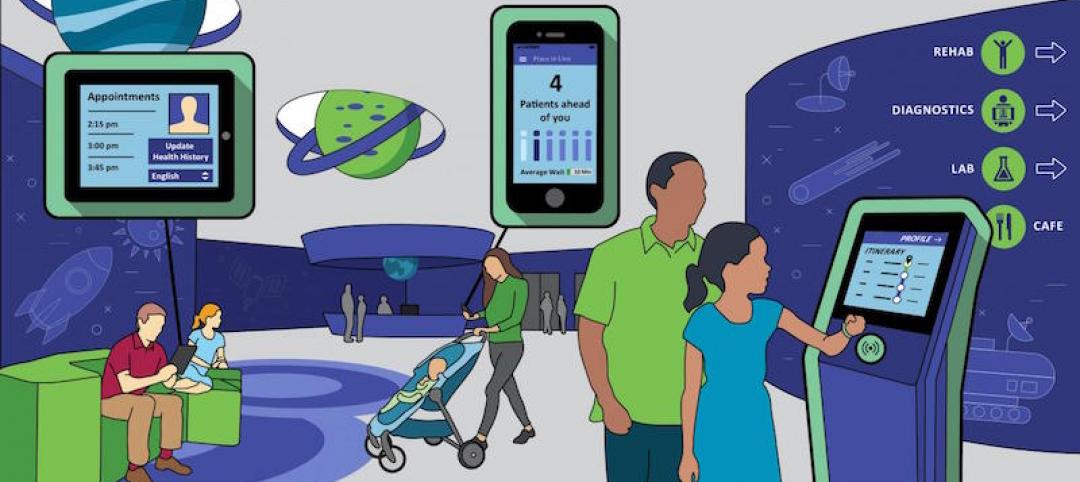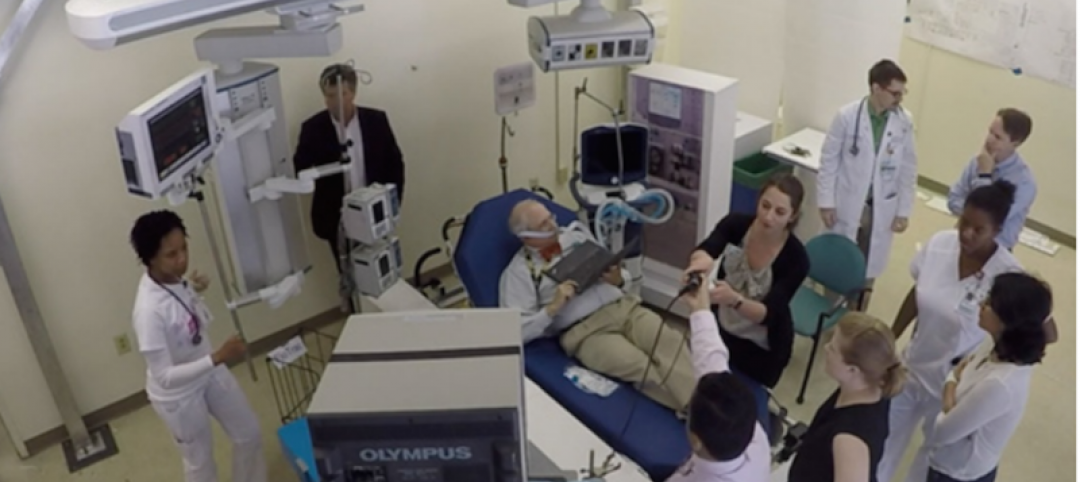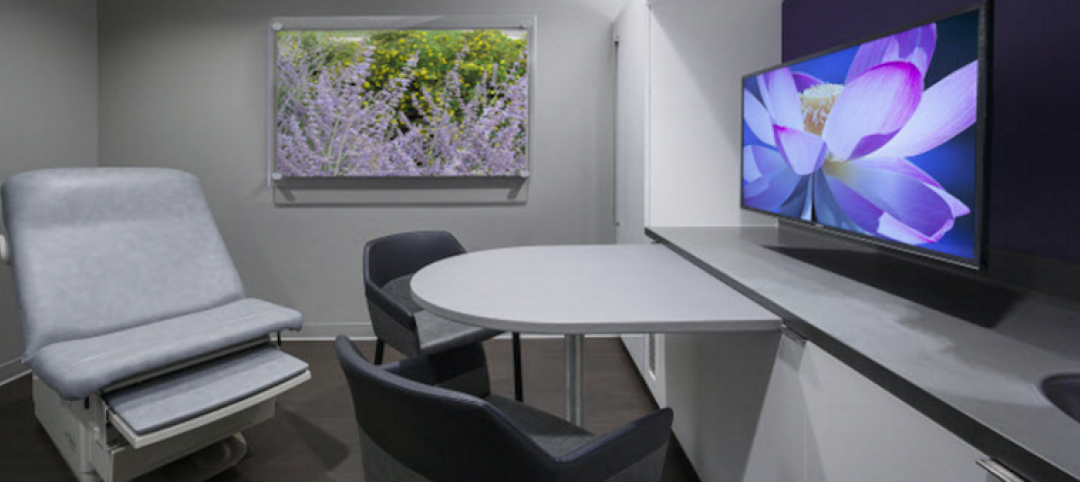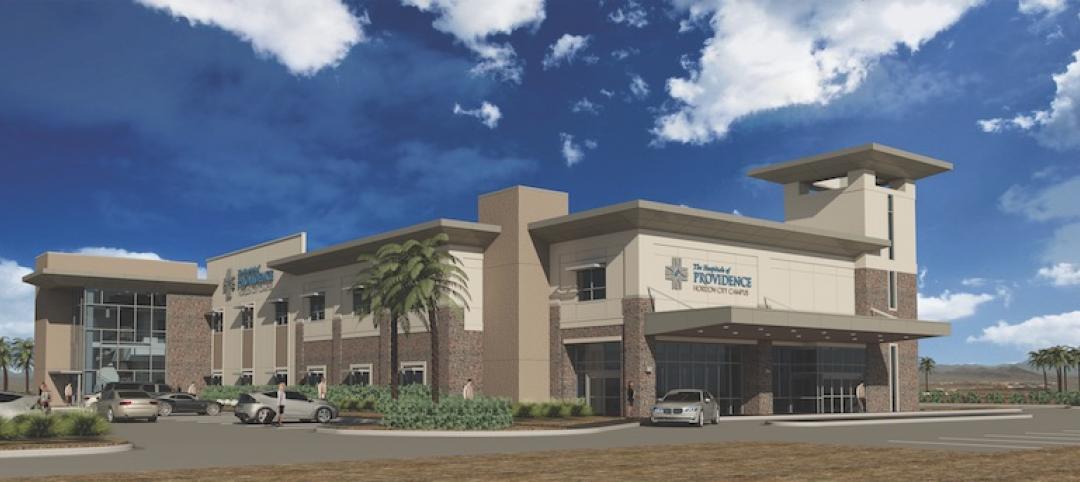Construction has commenced in Kansas City, Kan., on the country’s latest proton therapy center, which upon its scheduled completion in December will be the first of its kind to offer specialized radiation treatment to patients in Kansas, Iowa, Nebraska, Colorado, and Arkansas. This will also be the region’s only National Cancer Center-designated cancer center.
The University of Kansas Health System will offer this service through its Cancer Center. It has received, and has started to install, the equipment for the proton therapy center, which is designed by Hoefer Welker in partnership with Stantec, whose design expertise in this typology includes the 135,000-sf New York Proton Center, the first of its kind in that state.
Hoefer Welker is also providing FF&E services, clinical space planning, medical equipment planning, and construction administration for this project. The facility expects to start receiving patients next January.
Also see: Equipment being hoisted and positioned into place
“Many cancer patients can’t receive this specialized treatment without traveling across several states to get it,” says John Castorina, Partner, Principal-in-Charge and National Healthcare Practice Leader with Hoefer Welker. “The stress that puts on the patient, their well-being and their recovery—as well as the emotional and financial stress it puts on their caregiver—is immense, and it’s something we hope this new facility can provide relief for. The capability to provide this treatment is a profound addition to our community and our region.”
DESIGN INFORMED BY TALKS WITH MEDICAL PROS
The 38,200-sf proton treatment center—which would be the 38th in the U.S—is being constructed by Kansas City-based McCownGordon Construction and Fort Worth, Texas-based Linbeck. The facility will include a protective concrete vault whose six- to nine-ft-thick walls require 2,721 cubic yards of concrete and 377,513 lbs of steel rebar. The vault will house 160 tons of equipment.
Throughout the design process Hoefer Welker met with physicians and other medical staff to determine the needs of patients and their families. Those meetings included a “visioning” session that assessed psychological, sociological, and physiological impacts.
Related Stories
Healthcare Facilities | Apr 11, 2017
Today’s community centers offer glimpses of the healthy living centers of tomorrow
Creating healthier populations through local community health centers.
Healthcare Facilities | Apr 2, 2017
Comfort and durability were central to the design and expansion of a homeless clinic in Houston
For this adaptive reuse of an old union hall, the Building Team made the best of tight quarters.
Healthcare Facilities | Mar 31, 2017
The cost of activating a new facility
Understanding the costs specifically related to activation is one of the keys to successfully occupying the new space you’ve worked so hard to create.
Sponsored | Healthcare Facilities | Mar 29, 2017
Using Better Light for Better Healthcare
Proper lighting can improve staff productivity, patient healing, and the use of space in healthcare facilities
Healthcare Facilities | Mar 29, 2017
Obamacare to Republicare: Making sense of the chaos in healthcare
With a long road of political and financial uncertainty ahead for the healthcare sector, what does this mean for the nonresidential construction industry’s third-largest sector?
Healthcare Facilities | Mar 24, 2017
5 insights for designing a human-centered pediatric experience
Pediatric experience design must evolve beyond the common mantra of “make it fun” or “make it look kid-friendly.”
Healthcare Facilities | Mar 3, 2017
CBRE: Developing a total project budget for a healthcare capital project
Successfully developing a complete and well thought out Total Project Budget is perhaps the most important task you’ll perform in the initial phase of your project.
Healthcare Facilities | Feb 26, 2017
A Georgia Tech white paper examines the pros and cons of different delivery systems for ICUs
It concludes that a ceiling-mounted beam system is best suited to provide critical care settings with easier access to patients, gases, and equipment.
Healthcare Facilities | Feb 24, 2017
The transformation of outpatient healthcare design
Higher costs and low occupancy rates have forced healthcare facilities to rethink how healthcare is delivered in their community.
Healthcare Facilities | Feb 7, 2017
Microhospitals: Healthcare's newest patient access point
Microhospitals are acute care facilities that are smaller than the typical acute care hospital. They leave complex surgeries to the big guys, but are larger and provide more comprehensive services than the typical urgent care or outpatient center.


